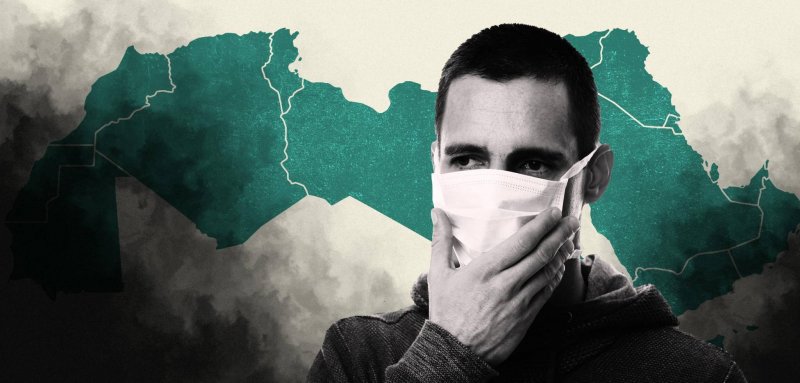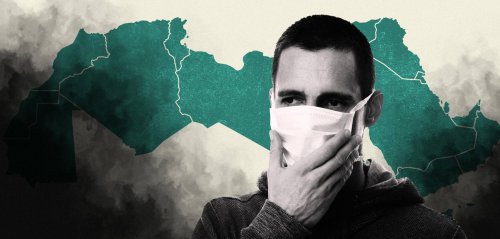While activists circulate images of Australia’s forest fires, focusing on the importance of not letting the event pass ignored, others brush off the scale of the fires, compared with the daily struggles raging in the Arab world.
This leaves us questioning the significance of such a division: one which affords 'human' issues a degree of importance that does not correspond to the degree that they affect the fate of our region. Our awareness of our continued pursuit of human rights does not entail denying that the world is simultaneously attempting to move towards a future which challenges the centrality of human beings within the scope of the universe, affording researchers the scope to reconsider the role of humanity through what has been termed "post-humanist" thought.
The philosophy of "post-humanism" reconsiders post-Renaissance "humanism", which emerged as a reaction against superstition and religious domination in medieval Europe. Humanism is composed of a wide range of philosophical and ethical currents that center on the belief in human values and human sovereignty on earth – while "post-humanist" thinking challenges the philosophy that places humanity at the top of the pyramid and at the center of the universe.
Post-humanist thinking views humans as organisms that are organically connected to all of their surroundings, thus rejecting any notion of their predominance or superiority as predicated in humanist philosophies. This current of thought thus rejects the notion of Cartesianism dualism which has long been adopted in science, and which categorizes humans as dominant over their surroundings.
Thinkers such as Donna Haraway, who studied the relationship between humans, animals, land and the climate, helped to illustrate the close connection between humans and non-humans while negating the "agency" myth, by which humans justify exploiting the planet's resources and energy for the benefit of their species.
The use of chemical weapons in Syria and other weapons in Yemen are all part of the environmental crisis, which in turn forms a crucial part of the humanist and post-humanist analysis
In the "Cyborg Manifesto", Haraway declared her rejection of the rigid boundaries separating humanity from animals and machines – while rejecting the hierarchy deployed in the colonial and patriarchal Western regime, which exists within a structural framework that leads to the manufacturing of the excluded and exploited "Other", such as women and ethnic minorities. She also examines linguistic concepts that promote a political duality that allows for patriarchal control.
Following the forest fires in Lebanon, for example – which were a main theme cited in the Lebanese protest movement – there was a short-lived debate on environmental issues. These however were so sidelined in favor of other humanitarian, political and economic issues which provoked the ire of the protest movement – a consequence of the scale of corruption that has encompassed all fields of life in the country.
This fire came despite the work undertaken by activists to mitigate environmental problems, a consequence of which was Lebanon's infamous rubbish crisis which served as a predictor of sorts of the forest fires. Moreover, it is important to remember that the scourge of war affects not only our present but our future on the planet over the next thousands of years.
The use of chemical weapons in Syria and other weapons in Yemen are all part of the environmental crisis, which in turn forms a crucial part of the humanist and post-humanist analysis. One question here arises: how long will the environment and animal rights continue to be forgotten, relegated always to the bottom of the list of Arab priorities? What justifies ignoring the catastrophes of environmental disasters that encircle our Arab societies and threaten our existence, by contrast to the importance given to issues of corruption, dictatorship and the repression of freedom?
Karen Barad, a physicist who also specializes in feminist studies, and one of the pioneers of post-humanist thought, exhibits through nuclear science the non-centrality of man as a researcher of phenomena, and his being tied and affected by the subject of his study – as man is not the center of interpretation, explanation and objectivity; accordingly, room must be afforded to the epistemological importance of other material-factors.
The metaphysical interpretation of an individual as constituting the foundational unit of society and phenomena allows human exploitation and control of all that surrounds them. Phenomena do not precede their interactions, and the universe is not divided into human beings and non-human beings; rather, their existence is manifested as elements that interact with each other. Post-humanist thinking calls for a review of the ethics of scientific research, and emphasizes that human responsibility arises from being a subject of research rather than an actor in it.
Post-humanist thinking also examines robot rights and the concept of a 'human machine.' While some see the existence of a robot as a separate entity from human existence, others see it as inextricably tied to it – with some even going so far to assert that humans are not entitled to control the existence of robots.
The so-called 'Saudi robot', named Sofia, prompts us to question the role of Arabs vis a vis Artificial Intelligence (AI), and how we will develop our ethical framework in this domain of the future. Again, this mode of thinking also raises questions surrounding the role of women amidst the progression of technology, including the issue of reproduction, genetic engineering and the construction of artificial organs with evolved and modified characteristics which surpass the capabilities of their natural counterparts.
Post-humanist thinking rejects hierarchies, which places a rich, physically-healthy heterosexual white man at the top of the pyramid, and emphasizes the sharing of work and labor in order to challenge hegemony, hunger, poverty, and environmental pollution. Indeed, a plethora of fields heavily influenced by feminist perspectives, such as disability studies, animal studies, and environmental activity, to name a few, question the centrality of "ethnocentrism" within humanism.
Ultimately, discussions surrounding post-humanism's pursuit of peace – albeit one which currently seems to lie far outside of our reach – and its being subjected to intellectual criticisms does not preclude us from absorbing the positive aspects that it espouses. Animal rights defenders are often ridiculed in the Arab world, on the basis that our (Arab) human society continues to suffer while it still seeks to achieve and realize its humanity. Furthermore, vegetarians in our society are also faced with aggression that criminalizes their right to choose a nutritional regime that gives them comfort.
Respect for the right to life of living things, within this debate, seems to be an unattainable luxury – as if the problems of global warming and environmental pollution do not concern us or directly affect our lives. Despite the negative attitudes exhibited by some against this movement, which carries characteristics of post-humanist thinking within the Arab world, activists continue to cite positive examples displaying the level of environmental awareness of the new generation.
In the end, the death of 480 million animals in Australia and the loss of a huge expanse of green land is a disaster that alarms and aggrieves us to the same extent as the other catastrophes that have befallen us. Respect for the right to life is an indivisible issue and the question of responsibility lies at the heart of our struggle to build better societies. "Post-humanist" thought allows us to self-reflect and reconsider the hierarchy and ordering of the issues we hold dear, in which environmental issues have become a central focus – a necessity in order to safeguard human existence and the survival of all other forms of life.
*The views and opinions expressed in this article are those of the author and do not necessarily reflect Raseef22
Raseef22 is a not for profit entity. Our focus is on quality journalism. Every contribution to the NasRaseef membership goes directly towards journalism production. We stand independent, not accepting corporate sponsorships, sponsored content or political funding.
Support our mission to keep Raseef22 available to all readers by clicking here!
Interested in writing with us? Check our pitch process here!






